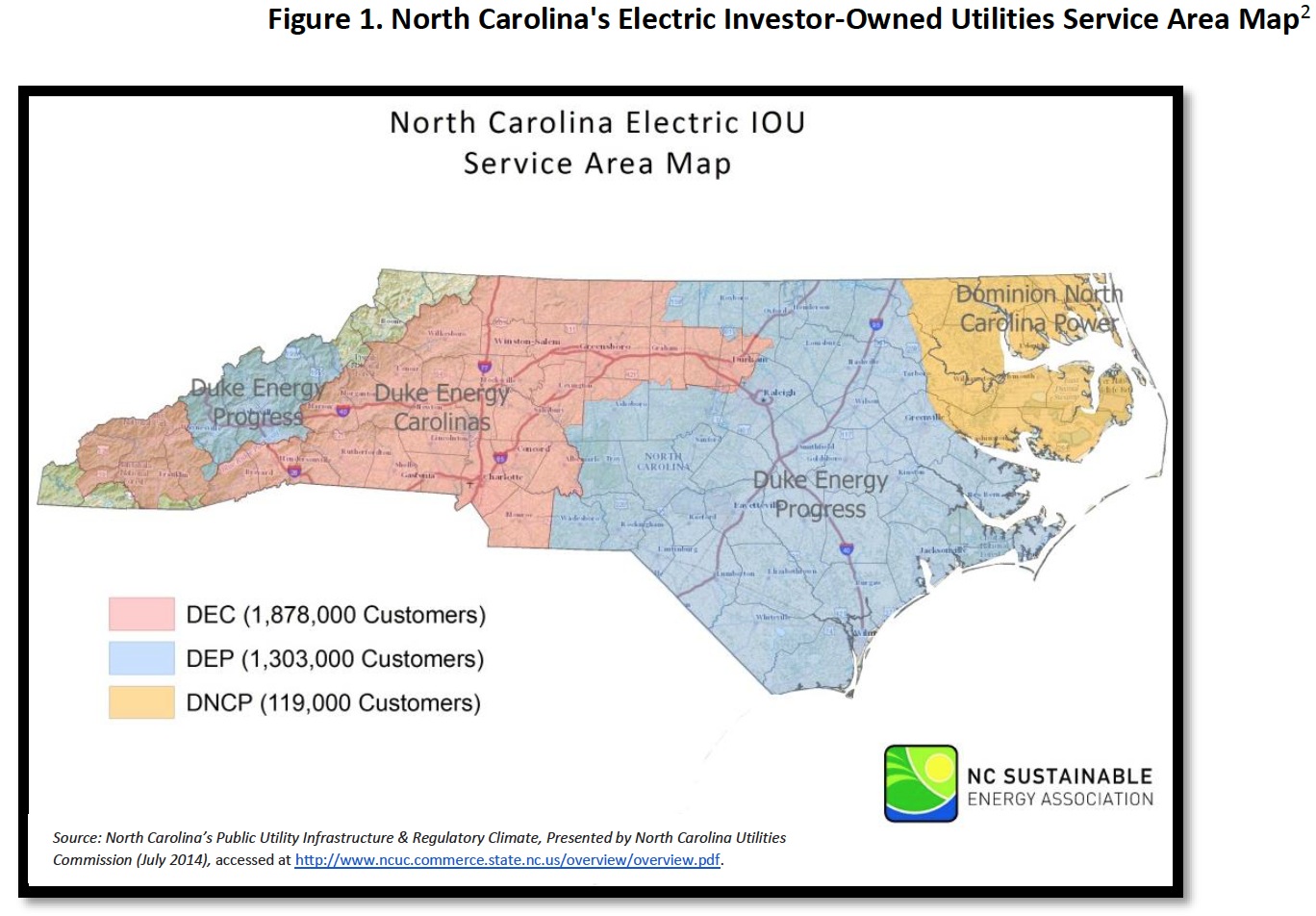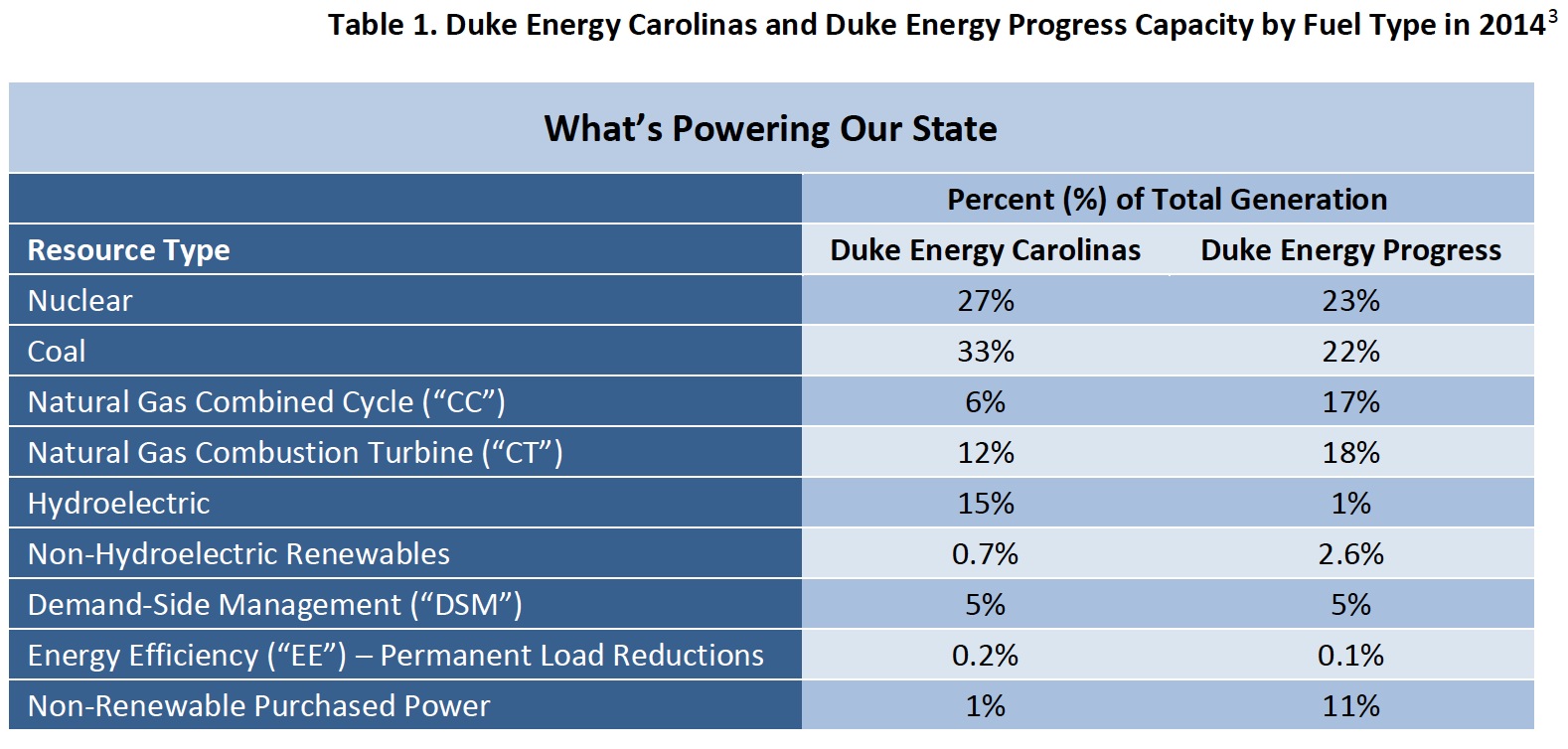NC SUSTAINABLE ENERGY ASSOCIATION
North Carolina’s Electric Industry
In North Carolina, there are three types of electric power providers that sell electric power to retail customers: investor-owned utilities (IOUs), electric membership corporations, and municipally-owned utilities. North Carolina has a highly-regulated electricity industry where at least 67% of electric customers are provided service by IOUs. North Carolinas’ IOUs include Duke Energy Carolinas (DEC), Duke Energy Progress (DEP), and Dominion North Carolina Power (Dominion). The merger of Duke Energy Carolinas and Duke Energy Progress (formally known as Progress Energy), approved by the NC Utilities Commission in 2012, made Duke Energy the largest electric power holding company in the United States, supplying and delivering power to approximately 7.2 million U.S. customers in six states.
North Carolina’s IOUs generate, transmit, distribute, and sell electric power to consumers across the state. In exchange for an exclusive service territory, IOUs can design rates to recoup operating expenses and capital costs necessary to meet their obligations to provide reliable, available, and affordable energy to their customers.
The utilities’ generation portfolios include a mix of resources, with different operating and fuel characteristics, to meet customer demand. In 2014, coal, nuclear and natural gas made up 79% and 91% of DEC and DEP’s existing electric generation and non-renewable purchased power, respectively. The remainder was supplied by other generation resources such as hydroelectric, long term purchased power agreements from the wholesale market, and renewable energy. Table 1 below illustrates the current capacity by resource type for DEC and DEP, as reported in their most recent Integrated Resource Plans (IRPs), a long-range planning document that provides insight into the utilities’ current and proposed conventional and clean energy infrastructure that could meet electricity demand.
Reliable and affordable energy is essential to support businesses, jobs, hospitals, and government services – but it comes at a cost. What makes up these costs and, in turn, customers’ rates is complex.
About the NC Sustainable Energy Association
www.energync.org
The NC Sustainable Energy Association (NCSEA) is a 501(c)(3) nonprofit membership organization of individuals, businesses, government, utility providers and nonprofits interested in North Carolina’s sustainable energy future. NCSEA drives public policy and market development to create energy jobs, economic opportunities and affordable energy to benefit North Carolina.
Tags: NC Clean Energy Association, NCEA








 RSS Feed
RSS Feed